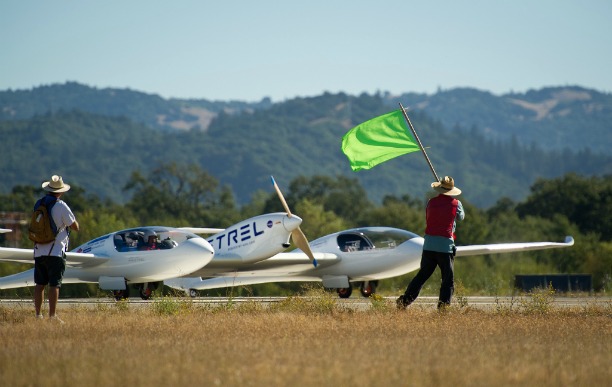Green Light for Fuel-Efficiency Races in California
Teams gathered their experimental planes in Santa Rosa, California last week for a competition of their environmental industriousness.
Teams gathered their experimental planes in Santa Rosa, California last week for a competition of their environmental industriousness. The Green Flight Challenge awards some serious prize money to promote what they hope is the future of flight: quiet, fuel-efficient, and with low-emissions. The aircraft, powered by green fuels like hydrogen or electricity, must fly 200 miles in less than two hours and use less than one gallon of fuel per occupant, or the equivalent in electricity, to be eligible for the $1.35 million first place purse.
Thirteen teams signed up for the Challenge, but only three teams made it to the actual race without dropping out or being disqualified. Performed over the course of a week, the challengers must meet requirements in three separate tests: noise, performance, and speed.
Two teams were up to the task, fulfilling all requirements. The electric powered Pipistrel scored first place, announced at the awards ceremony Monday afternoon. According to its website:
The Taurus Electro G2 can use a shorter runway, climbs faster and performs much better than the gasoline-powered version when it comes to high altitude operations. All this is possible thanks to the specially-developed emission-free Pipistrel’s 40kW electric power-train.
One other plane was up to the challenge, though with slightly lower scores than the Pipistrel: the e-Genius. Also a two-seater electric plane, the German plane uses a 60-kilowatt motor and is backed by Airbus. Though it didn’t take top honors, the team will still take home $120,000 for second place and an additional $10,000 for the Lindbergh Quiet Aircraft Prize.
The Green Flight Challenge was founded by the Comparative Aircraft Flight Efficiency (CAFE) Foundation and is sponsored by Google, while NASA provides the total $1.65 million in cash prizes through their Centennial Challenges Program.
